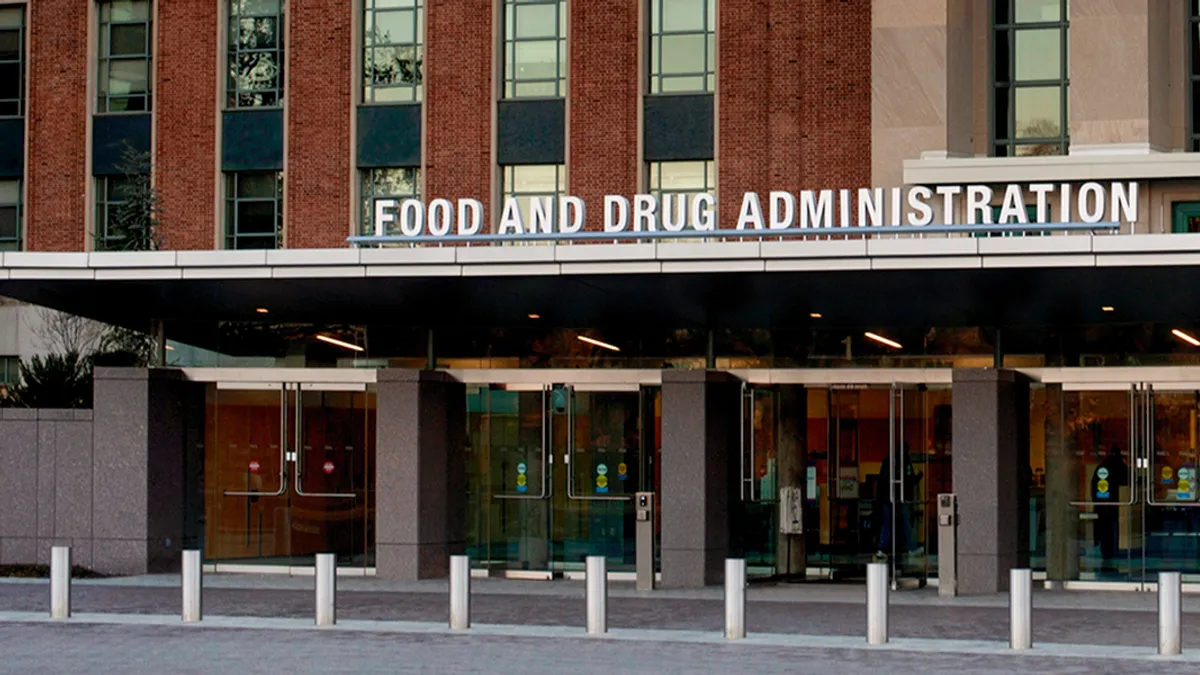Dive Brief:
- Medical device interoperability will be the focus of a workshop hosted by the Health Information Technology Research and Development (HITRD) Interagency Working Group scheduled at the FDA campus in July.
- The public event is billed as a "federal listening session" focused on the interoperability of medical devices, data and platforms, with the aim of improving patient care. FDA in 2017 issued final guidance on design considerations and premarket submission recommendations for interoperable medical devices.
- The workshop intends to spur discussion of the challenges and impediments to creating interoperable systems and consider ideas leading to a shared vision for developing solutions. The working group said it hopes feedback from industry, academia and government will generate ideas for research directions that can advance medical device interoperability.
Dive Insight:
HITRD’s listening session is focused on potential solutions for achieving interoperability across medical devices, electronic health records (EHRs) and the data generated by and stored in the systems.
The group said it believes that advancing the ability to move standardized data between multiple medical devices and systems could significantly enhance patient outcomes by improving the quality and consistency of care, reducing errors, enhancing efficiency, reducing development times and costs, and decreasing healthcare provider burnout. Safety must be engineered to address new apps and safety interlocks while preventing unsafe interference, the group said.
HITRD described a scenario in which a patient’s data could flow to the best-suited emergency room in advance of the person’s arrival, then transfer within hospital systems as the individual transitions to a new care location. Medical devices could be augmented or removed as the patient’s status changes. Faulty equipment could be switched seamlessly with a device from another vendor. Real-time device data and settings from devices such as insulin pumps could be synchronized and integrated with the medical record.
Changes in equipment configuration could be stored via a medical black box recorder-type device and analyzed to assess the quality of care, review adverse events, create a learning health system for process improvement, and develop algorithms for managing groups of medical devices or assessing maintenance requirements.
While the concept of interoperability among healthcare systems has garnered much attention and support across the industry, actual progress toward the sharing of electronic medical records and data has been more difficult to achieve.
In February, CMS proposed a rule that would discourage information blocking and enable millions of patients enrolled in government-sponsored health plans to receive free electronic access to their personal health data by 2020. A related proposal by the Office of the National Coordinator for Health and Information Technology called for industry to adopt standardized application programming interfaces, or APIs.
Healthcare groups responded with concerns about the quick implementation timeline, requirements for providers to share with the medical team when a patient is admitted, transferred or discharged, accuracy of record matching, and long-standing worries about data privacy and security.
The workshop will zero in on six specific areas:
- Data, meta-data
- Access to control of devices
- Leadership and governance
- Incentives
- Management and modernization of standards
- Infrastructure, tools, and use cases
The session is expected to lead to the publication of a public report summarizing key takeaways from the event to advance medical device interoperability.
The Networking and Information Technology Research and Development (NITRD) program event is scheduled for 8 a.m. to 5 p.m. July 17 at FDA’s White Oak Campus in Silver Spring, Maryland.










